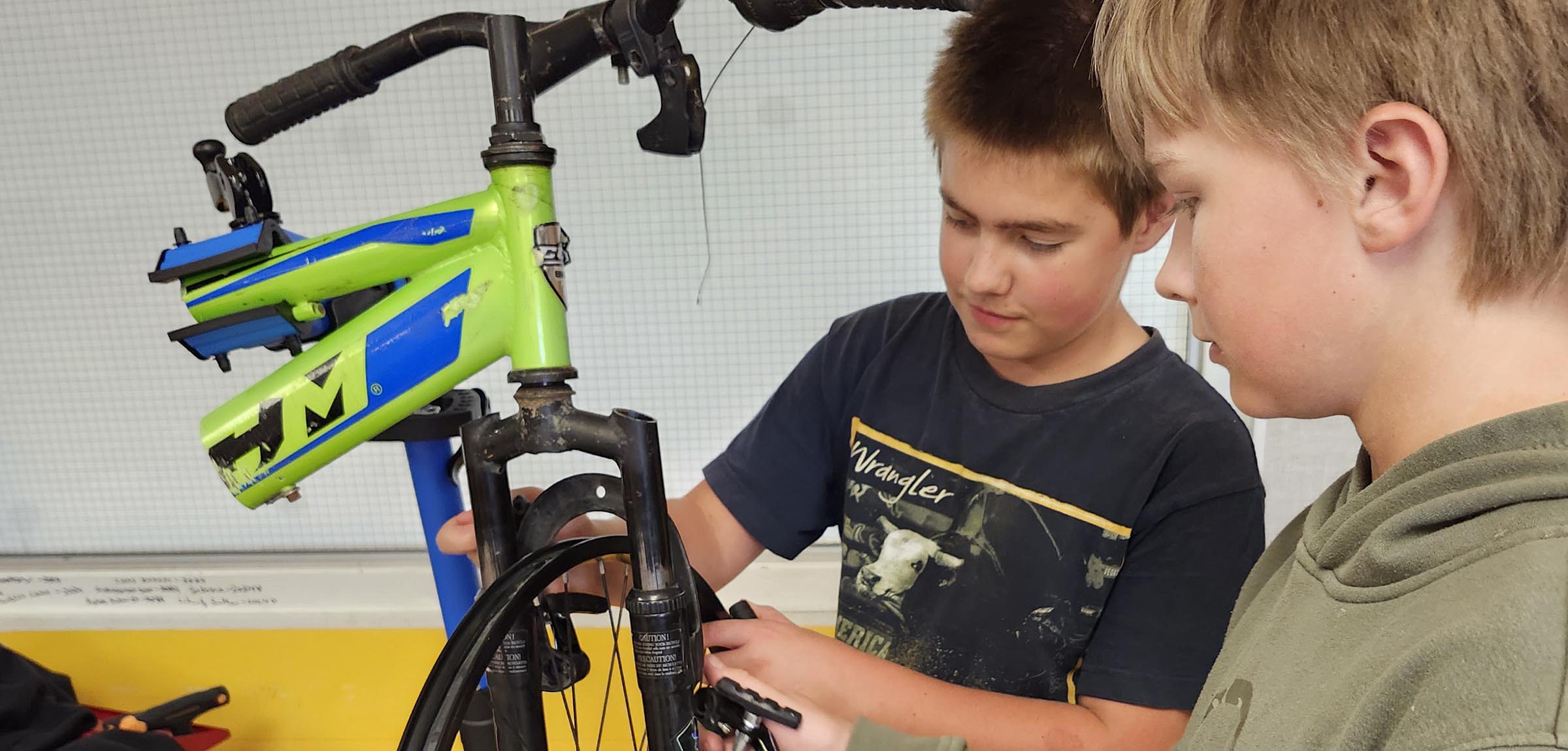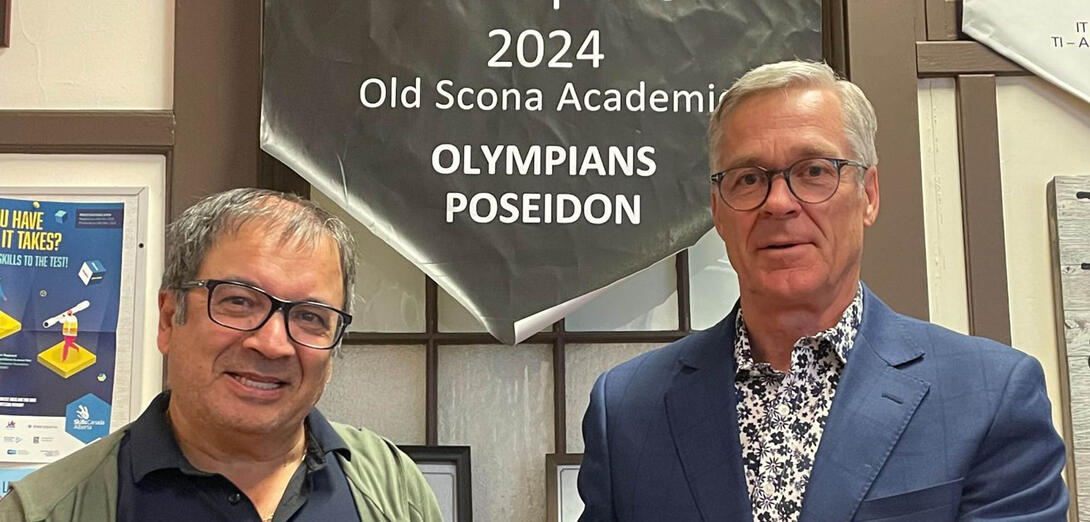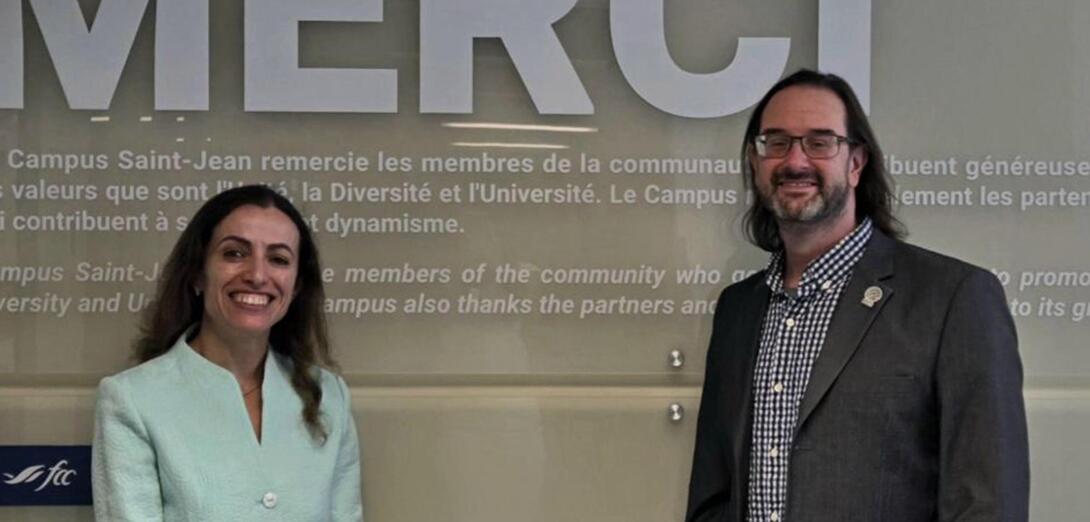There’s a lot to be learned from fixing a temperamental bicycle.
That’s been the experience of Dustin Moreau, the shop teacher at Westglen Middle School in Didsbury.
In the fall of last year, Moreau wanted to provide students with an outlet for their mechanical interest, and so he created a bike mechanics course. His inspiration was his growing collection of disassembled small engines and the school’s heavily populated bike racks.
“I was getting a little frustrated with all these engines that I had in pieces, and no one wanted to put them back together,” Moreau says.
“But I noticed how many bike racks we had and how many kids are riding bikes, and I thought to myself, well, that’s kind of a nice mechanical system which is a little simple ... so I thought that would be a cool way to introduce a good practical skill.”
Moreau created an option course based on a two-day bicycle mechanics course he’d taken at the University of Calgary. His course is based on the ABCs of bike mechanics: air, brakes and chain. Students start by learning how to inflate a tire and repair a flat, then move on to brake and chain adjustments.
Currently in its second year, the course has attracted more than 40 students per year and has been embraced by both the school board and the broader community.
The Chinook’s Edge board approved a $5,000 innovation grant that financed the purchase of 10 mobile bike stands, 10 mobile tool carts and the tools to fill them, while community donations have kept the school supplied with bikes for the students to practice on.
“I’ve been shocked with the support,” Moreau says. “If I needed something, I’ve been able to get it.”
A little rusty
The program has not been without its frustrations for students. The first wave of donated bikes included many that had been rusting in barns for years — not the easiest to get roadworthy. However, as time passed, Moreau isolated a collection of better-conditioned bikes for students to work on to set them up for success.
Students are also able to work on their own bikes, which increases the likelihood that they will ride and stay active, Moreau says.
Overall, the program has enabled students to develop patience, resilience and problem-solving skills.
“It really has a good problem-solving routine to it, which I hope that those students can take into their math classes and their other core classes ... how to see a problem and work your way backwards,” Moreau says.
“I’m excited to see the program five, 10 years down the line,” Moreau adds. “It’s been really good. It’s been a learning curve for me, kind of learning with the students as we go, but I’m starting to really enjoy it.”
Call for submissionsSuccess Stories is an ongoing feature that enables teachers to share their successes with their colleagues. To submit an idea or an article about a new program or approach that you’ve instituted, please contact managing editor Lindsay Yakimyshyn at lindsay.yakimyshyn@ata.ab.ca. |



